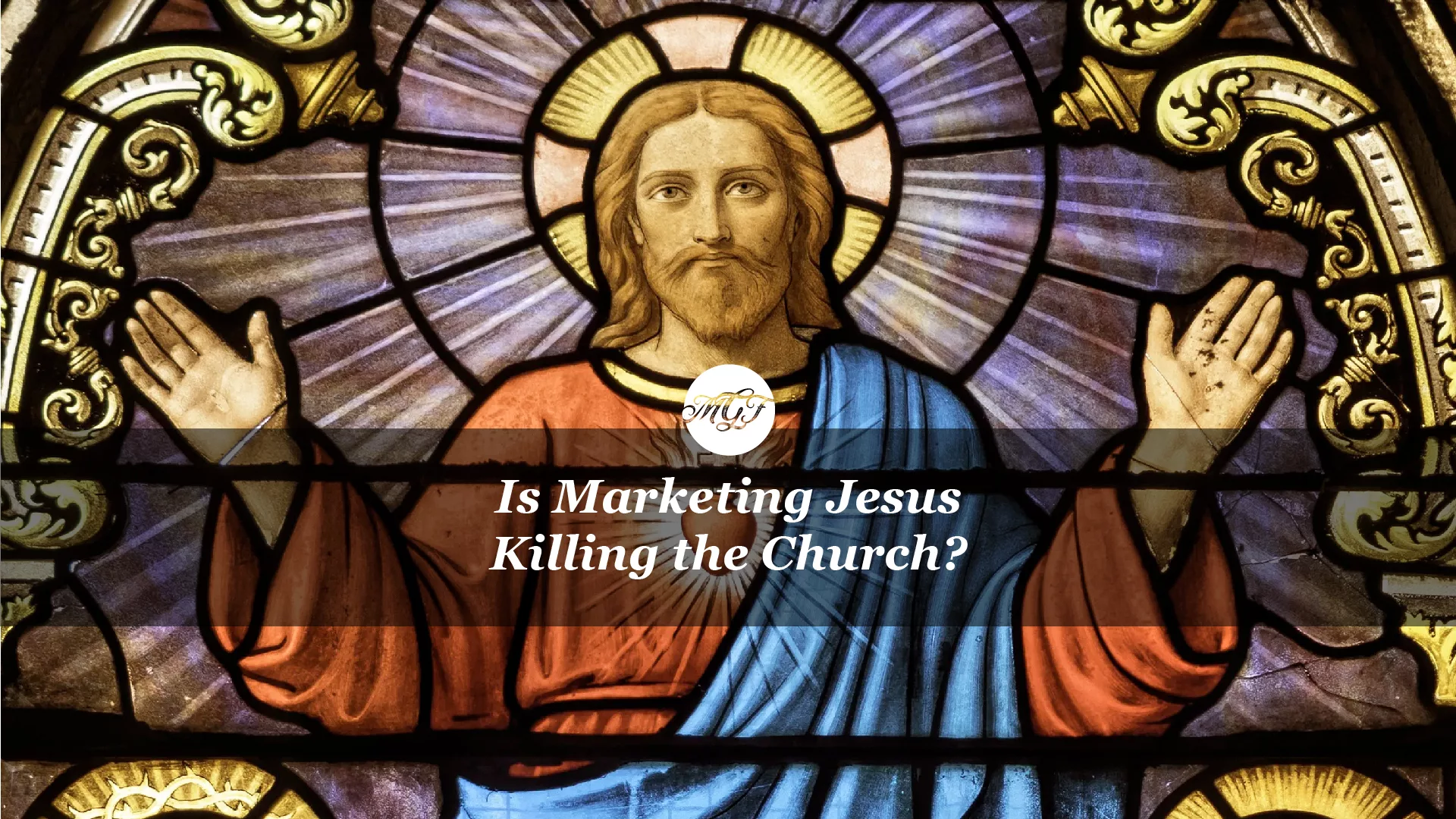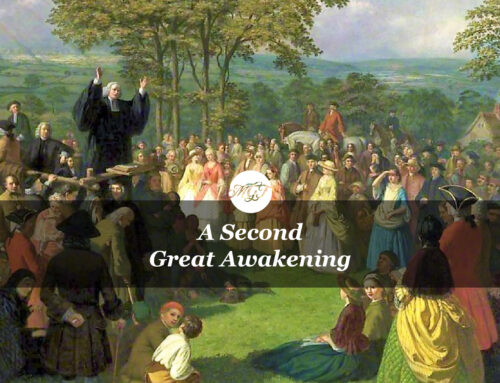My last article, which several thousand of you read (thank you so much), apparently struck a chord. It’s becoming undeniably clear that something is fundamentally broken about the modern Church movement in the West. Too many are leaving disenchanted, confused, hurt, broken, and even questioning their faith. If it were only me, I would have shrugged it off as some sort of personal deficiency or misunderstanding. But I have heard from hundreds of you over the last few days, reaching out (mostly anonymously) to tell me you’ve experienced the same things I did — namely abuse and a woeful lack of self-awareness on the part of your church leadership. It’s not all on account of one church either, before anyone starts pointing fingers. It can’t be a coincidence that so many of us have the same story.
This is something I’ve suspected for years. The response to my previous article has only served to confirm my suspicions.
I think it’s time we start exploring this together. I don’t know that we’ll find all the answers — we’re not God, after all. But maybe we can learn something from our mistakes. And maybe together we can find a better, wiser way forward.
So what’s really broken about the modern Western Church?
That is a loaded question. I do not pretend to have fully unpacked this. There are so many layers to it, as with anything. But the point of this article is to share what I see as at least the first glaring problem. Or perhaps it’s a problem I have a unique perspective on, considering it has been a factor of my vocation for my entire career. Keep in mind that this is by no means the definitive list. I’m sure I will add to this as time goes on, but I will start with what I’ve been able to observe and finally articulate over the years. I’d love to know what you think, too, so please keep reaching out. It has been cathartic to hear your stories.
The Corporate Marketing Machine
If you were to look at the operations and financial books of modern churches, particularly megachurches, they would be indecipherable from any typical corporate model with CEOs, CFOs, COOs, HR departments, and on and on. Most churches I have observed today have a bloated staff of nonsensical roles made up by a handful of leaders at the top who have zero real-world business experience. Herein lies the irony: a bunch of non-corporate, non-experience types attempting to run a church like a corporation. No, they don’t call their leader the CEO, they call him the Senior Pastor. (Or Lead Pastor, if they’re trying to be cool.) No, they don’t call the second in command the COO, they call him the Executive Pastor. They’ll call their CFO their Finance Pastor or something equally nonsensical. But in effect, all titles aside, modern churches are run (badly, mind you) like corporations. They are indistinguishable.
I’m not sure if this mindset is taught in seminary, as I’ve never been, but it seems the going theory is that what works for corporations should work for churches. For years, I did not question this practice. After all, organizations need to be, well, organized. And if it ain’t broke, don’t fix it, right? What’s wrong with a corporate model? It works for corporations; why can’t it work for the Church?
If you ask anyone in church leadership whether they intend to poorly mimic corporate America, they would deny it. Of course not! This is not a business, this is church! But this inevitable denial is only evidence of an epidemic of a lack of self-awareness within the American Church.
Perhaps if I hadn’t experienced the mess that this sort of system creates firsthand, I would feel that way too. But after years of peeking behind, dwelling in, and even helping install the curtain, I can tell you without a shred of doubt that running a church like a corporation is at the very least one of the major issues with the Western Church today. Here’s why.
Goods and Services
Corporations exist for one reason: to sell goods and/or services. Maybe they make shoes. Maybe they make apps. Maybe they are a non-profit facilitating donations to aid orphans. It doesn’t matter what they do, the bottom line is that they exist to offer a good or service and to make money off of it. To make money, they market. Marketing is a term thrown around like a rag doll that few ever stop to actually consider its meaning. But in a nutshell, marketing refers to the mechanisms by which corporations and businesses tell the public about what they offer. Marketing can mean ads. It can mean community involvement and sponsorships. It can mean branding. It can mean merchandise. It can mean content for social media. But it all boils down to one thing: selling.
If churches today are setting up according to this model, then it begs the question: what exactly is the Church selling? A very wise friend of mine once asked me that very question and my marketing mind immediately went to work. “A better life,” I answered. “We sell Jesus.”
To a Christian, that might mean something. To a perpetual church-goer, that might even make sense. But to everyone else, that is utterly meaningless. Intangible. A giant nothing burger. How in the world do you sell Jesus? Think about that, really. What in the world does that mean?
You can’t sell Jesus any more than you can sell happiness or sunshine or pleasure. Maybe you can sell a mechanism by which your customer experiences those things, but you cannot sell the thing itself. You can sell a beach vacation and your customers will experience the sun, but you’re not selling them the sunshine itself. It’s not for sale because it can’t be made tangible. Sunshine is the result of the existence of the sun and as of yet in our human progress, we have not found a way to sell it. (It reminds me of the Sheryl Crow lyric, “I’m gonna soak up the sun while it’s still free.”)
Just like you can’t sell sunshine, you can’t sell Jesus.
Therein lies the Church’s problem. Jesus isn’t marketable.
Oh I know some of you are bristling right now. I can virtually hear your protests. “Yes, Jesus is marketable! He’s the most valuable thing a human can experience!”
If that’s your gut reaction, I’m going to ask you to take off your church goggles for a moment and walk with me.
Commoditization of the Spiritual Experience
Jesus is not a commodity. He’s not branded. He’s not tangible by any meaningful human metric.
He’s at best a concept.
Don’t get nervous — I’m not trying to be heretical. I know Jesus was a real human who walked the earth. And I believe that he is alive today on the throne of Heaven. That’s not what I mean. I’m talking about right now, at this moment in human history, our method of interacting with Jesus cannot be in a tangible form because HE is not in a tangible, earthly form at the moment. I’m simply pointing out the age-old dilemma of humanity. It has always been difficult for us finite creatures to find meaning in the intangible. It’s the reason the Hebrews raised a golden calf in the desert and it’s the reason the Catholics put a crucifix on the wall. It’s the reason we wear cross necklaces and the reason we get tattoos. We want to give meaning to feelings and experiences. We want to relive them. Remember them. Memorialize them. Honor them. We want something we can interact with. See. Touch. Taste. Feel. We want something we can ascribe value to.
We did that in the modern Church, too. In an effort to divorce ourselves from the idols of yore — namely altars and incense and crucifixes and saints — we’ve built for ourselves a brand new idol. The modern-day Golden Calf.
We’ve built for ourselves the idol of commoditization.
In the modern Church, we’ve built a model based on organizations that sell something. We’ve taken the sacred and applied secular principles. We can’t help but default to that mentality. We’re flawed humans, after all. We want to make Jesus and discipleship tangible because it’s the only way we think we can truly relate to him.
-
We craft clever, branded programs for every phase of life and call it discipleship.
-
We make merchandise with scripture on it and call it evangelism.
-
We produce albums with lyrics that could be love songs and say we’re changing hearts.
-
We write self-help books and call it the Great Commission.
-
We set up events that read like a corporate training seminar and call them life-changing.
We do everything we can to make the intangible tangible. And we go out of our way to market those things because we think it’s the best way to get people to dip their proverbial toes in the proverbial waters.
“You, too, can taste and see that the Lord is good if you’ll just read my book. It’s available for purchase in the church bookstore.”
It’s all in good faith. I hope you see that. These mechanisms we’ve set up in the modern Church are birthed out of the right heart. I really believe that. We formed our own Christian music genre to reach people. I believe that. We make and sell our own Christian t-shirts to be an influence in a lost and dying world. I believe that. We write books to help people navigate the muck and mire of everyday life and hopefully point them to a greater Truth. I truly believe that.
I know what you’re thinking. “Morgan, you’re an author. You sell books. You’re a hypocrite.” And you’re right, I do write books with an undeniably spiritual foundation. I write them to point people to the Creator in an unorthodox way. But the difference is I don’t use the Church to market them. I don’t even market them as Christian books. In case you’re wondering if that’s a newly-instituted philosophy on my part, it’s not. You can read about it from articles I wrote in 2020 here and here. But that’s another discussion for another time…
None of those things we do or make — no book, no song, no t-shirt, no event, no band, no pastor, and no church service — are Jesus. They’re just tools we use to try to make him tangible. Real. To try to feel something where he is concerned.
And oh how we love to feel something. We love that mountaintop experience. We want to feel the same way about Jesus that we feel about Taylor Swift. We tell ourselves we will if the next church service is just a little more polished, if the band is just a little better, if the pastor is dressed just a little trendier, if the lights are just a little flashier and the lobby is just a little sexier then we’ll really have arrived. We tell ourselves these things matter. We tell ourselves they are making a difference. They’re reaching people.
And yet people aren’t changing. Not in any way we can measure. We call attendance success. We call regular attendance triumph. And we carry on with the false premise that all of our programs and events and merch and music and sexy sermon series graphics are the reason we’re growing.
If not this, then what?
The real question I had to ask myself as I began to realize what is happening in our Church walls is this: if not this, then what? How else are we supposed to have our churches function? If they’re not organized in some way, if they’re not relevant to the modern culture, if we’re not measuring attendance, counting tithes, holding events, selling merch, and making albums, how else are we supposed to tell a lost and dying world about Jesus? And how else are we to measure whether we’re having any real impact?
It’s a great question. And to be frank, it’s not an easy one to answer. At least not through the lens of Western thinking. I do not claim to have all the answers by any means, but let me submit some ideas to start with.
The first question I think we need to ask ourselves is this: what is the purpose of the Church?
If you’ve gone to church for any amount of time, you probably already have that answer in your back pocket. “To worship, of course!” So I’ll ask you: What does it mean to worship? Is it songs? Communion? A sermon? Is it fellowship? Teaching? A Sunday school lesson? If your answer is yes to all of the above, then you’re thinking how I thought for the majority of my adult life. Church and worship is all of the above.
To some extent, that’s true.
But to a greater extent, if we took all of that away, could we still have church?
A Crazy Idea
I remember hearing a story of a worship pastor in my former church who prepared his team for a huge night of worship he had scheduled. They pulled out all the stops, decorating the auditorium, designing a new set for the stage, writing songs for the set list, and rehearsing for months. So much planning, prep, creativity, and effort went into this night of worship. But the pastor didn’t tell anyone on his team a little secret he was keeping. It was a secret he didn’t reveal until the night of the event.
He didn’t invite anyone.
He didn’t even tell anyone it was happening. So his team stepped out onto the stage to an empty room that seated 5,000. No one was there but the band and the production team. Not a soul. The room was empty. Silent. Devoid of the life and energy the band comes to expect on nights like these.
The band was dumbfounded, immediately asking the questions, “What did we do wrong? Why didn’t anyone come? What could we have done differently?” (Do you see the real question they’re asking? “How could we have marketed better?” It’s everywhere, I’m telling you.) It was only then that the pastor turned to face them and revealed his secret: he hadn’t invited a soul. He then posed one question: “Will you still give your all? If there’s no one in this room, will you still worship with all of your guts? Will you still pour out all that you are as an offering to the King?”
They played the set that night. To an empty room, they played every note flawlessly, weeping and worshipping in a way that I would imagine transformed them for all of eternity. And soon the need for the crowd, the need for the validation that comes from the shouts and applause and energy and bravado disappeared. What was left was only worship. True and free and honest. Raw and untainted by performance or pride. Just singing to the Creator with no other agenda.
That story has always haunted me. I remember the first time I heard it, I was immediately struck by one thing: I very much doubted I would have had the same reaction. I’m positive I would have been angry. Incensed. Appalled that someone would have the gall to ask so much of me for nothing.
That was the beginning of a very, very long journey of self-reflection, leading me down the path of realizing how selfish I really am. How prideful. How short-sighted to think that church is only worth pulling off if it’s for a crowd. Over the years, I have battled this mindset again and again. I toured the country for ten years and found myself counting as a success the shows that were to a sold-out, crowded room, while I mourned the shows with a handful of disinterested spectators. I thought numbers meant something. I thought they lent credibility. Couple that with the fact that I was attending a megachurch at the time, intrinsically teaching my heart that massive crowds spell meaning. Droves of people were surely a sign that our church was doing something right.
That can be true, don’t get me wrong. Crowds can be a good sign.
But I would submit that the majority of the time, crowds are an indicator of one thing: you’re doing something intriguing. Maybe it’s intriguing for the right reasons. Probably it’s intriguing for titillating reasons. Probably people are interested because the mob mentality predicts that people go where something interesting happens.
I hope you see where I’m going with this.
Megachurches, Unfortunately
I do not believe, at least for now, that megachurches can never be good, never be right, and never do good or help people to change their lives. I have witnessed enough, having been an intrinsic part of a couple of them to know that good happens anywhere God wants it to. But as I witness more and more of the mechanisms that destroy people, I am increasingly convinced that as a rule, the megachurch is not the ideal to which we should aspire (a sin of which nearly every small evangelical church is guilty). They are instead the unfortunate outcome of the corporate infrastructure upon which we’ve built our operational model.
People are our leads.
Tithing is our P&L.
Evangelists are our lead sources.
Music, merch, and book deals are our products.
The result is a messy, badly run machine that chews people up and spits them out tired, weary, hurt, broken, and questioning their faith. All in the name of growing the church.
I submit an alternative idea.
Outward Growth Versus Upward
Here’s a crazy question: who is church for? Is it you? Me? The lost? The seekers?
Or is church for God?
Is church for worshipping him? Is church for the benefit of God — his glory, his praise, his name being lifted high? I hope you answered yes to this, because when you really start to think about this, it changes everything.
Yes, when we worship the Father there is something in it for us — namely the sacrifice of praise; the idea that we would continually (weekly) lay ourselves aside and realign with his will, his heart. That sacrifice brings peace. Joy. Hope. Faith. Love. But just because we get a benefit from church doesn’t mean church is for us. I liken it to attending my child’s birthday party. It’s for her. She’s the real hero of the event. But I get a lot of joy out of honoring and celebrating her when I arrange and attend the party. But if I’m arranging and attending the party solely for the benefits I’ll get from it, it’s not really for her anymore, is it?
See where I’m going with this? I think we’ve gotten church backwards. And I think the corporate model facilitates this backward thinking because it forces us to pad the bottom line, so to speak. It forces us to put the outcome, not the intent, at the forefront.
So here are some alternate ideas…
What if we stopped counting attendance and started falling on our faces in worship? What if we stopped trying to make our stages look like a Taylor Swift concert and started revering art in the Church again for the sake of giving our best to the Creator? What if we stopped using social media to advertise the next church event and started using social media to teach the Bible and encourage weary people? What if we stopped caring whether we looked relevant and started caring whether we were being authentic? What if we stopped looking for the newest creative way to convince a stranger to walk in our doors and taught ourselves to be the Church Monday through Saturday? What if Sunday was just for realigning our hearts to the Will of the Father and not for constantly begging the congregants for money and more friends? What if we never made another album? What if we never sold another T-shirt? What if we never branded another sermon series? What if we took down our logos and put back up steeples? What if we stopped caring about looking relevant and started caring about being God-honoring? What if we stopped looking for reasons to spend millions of tithe dollars on events and merch and started spending that money on people in need? What if we stopped paying church staff? (GASP) What if we cultivated an environment where it was weird to show up without your Bible? What if we cultivated an environment where people stopped expecting to be entertained and instead expected to fall on their knees and remove their sandals? What if we made church about worshipping a Holy, worthy God? What if we preached the whole Gospel, not just the parts that don’t offend people? What if we asked more of our congregants? More of ourselves? What if we set the example? What if we set the bar high? What if we stopped building the church brand on the celebrity pastors we hire? What if we stopped branding our churches altogether? What if we stopped hiring celebrity musicians to come in as guest worship leaders? What if we stopped caring if the band sounds like the radio? What if we stopped treating people like a commodity? What if we asked someone how they’re doing and then really listened to their answer?
What if?
What if we never spent another dime marketing Christianity? Do you think it would die?
It will if we keep churning out milquetoast Christians who have no idea what discipleship is. It will if we keep building giant kiddie pool churches and never teach our people to swim in the deep end. It will if we keep manufacturing Jesus-themed country clubs and calling them churches.
But if we joined that silent minority and started being the church instead of expecting church leadership to market Jesus with our title dollars, Christianity would be a global phenomenon as it was two thousand years ago. It would be a force to be reckoned with.
A city on a hill that cannot be hidden.
Final Thoughts
I think there are churches today that do what I mentioned above. I think there are still churches that are focused on God, not themselves. But do you know why you and I don’t know about them? Because they’re not marketing themselves. They’re not worried about outward growth before upward growth. They focus on deep roots, knowing that will inevitably result in large branches. They’re not sexy and branded. Their pastors aren’t cool and their worship teams aren’t polished. They don’t have LED screens and fog machines. They’re just genuinely seeking the heart of the Father. Are they perfect? No. No church is. But that excuse we hear all the time — if you’re looking for a perfect church, don’t join it, because the moment you do, it won’t be perfect anymore — has enabled abuse, bad leadership, and heresy for too long.
It’s time to find a better way.














